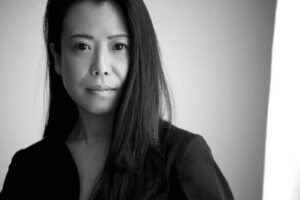Dennis Russel Davies, Chief Conductor & Artistic Director of the Filharmonie Brno

Dennis Russell Davies (1944), a graduate of New York’s renowned Juilliard School, began his conducting career as Music Director of the Saint Paul Chamber Orchestra in Minnesota (1972– 1980), and from 1977–2002 was also Chief Conductor of the American Composers Orchestra in New York, as well as, from 1991–1996, Principal Conductor of the Brooklyn Philharmonic. Since 1980, he has resided primarily in Europe. Davies has been General Music Director of the Staatsoper Stuttgart (1980–1987), Chief Conductor of the Beethoven Orchester Bonn, Music Director of the Bonn Opera and Artistic Director of the Bonn Beethoven Festival (1987–1995). Subsequently, in Austria, he was professor of orchestral conducting at the University Mozarteum Salzburg and Chief Conductor of the Vienna Radio Symphony Orchestra; in 2002, he was appointed Chief Conductor of the Bruckner Orchester Linz and the Landestheater Linz, a 15-year tenure which saw the inauguration, in 2013, of the new Linz Opera House. During 2009–2016, he also held the post of Chief Conductor of the Sinfonieorchester Basel. Guest engagements have included appearances with major orchestras and at prestigious opera houses throughout the United States, Japan and Europe. Since the 2018/2019 season, he has been at the helm of the Filharmonie Brno as Chief Conductor and Artistic Director; as of fall 2020, he has also assumed the position of Chief Conductor of the MDR Symphony Orchestra Leipzig.
Davies is known not only for his extraordinary breadth of repertoire, but also for his ongoing collaborations and close working relationships with prominent composers, past and present, including Luciano Berio, William Bolcom, John Cage, Manfred Trojahn, Philip Glass, Heinz Winbeck, Laurie Anderson, Philippe Manoury, Aaron Copland, Hans Werner Henze, Michael Nyman and Kurt Schwertsik. As conductor and pianist (or both simultaneously), Davies has released over 80 widely acclaimed recordings. In 2009, he was elected a Fellow of the American Academy of Arts and Sciences; in 2014, the French Ministry of Culture named him Commandeur des Arts et des Lettres; and in 2017 he was awarded the Austrian Ehrenkreuz für Wissenschaft und Kunst, First Class.





